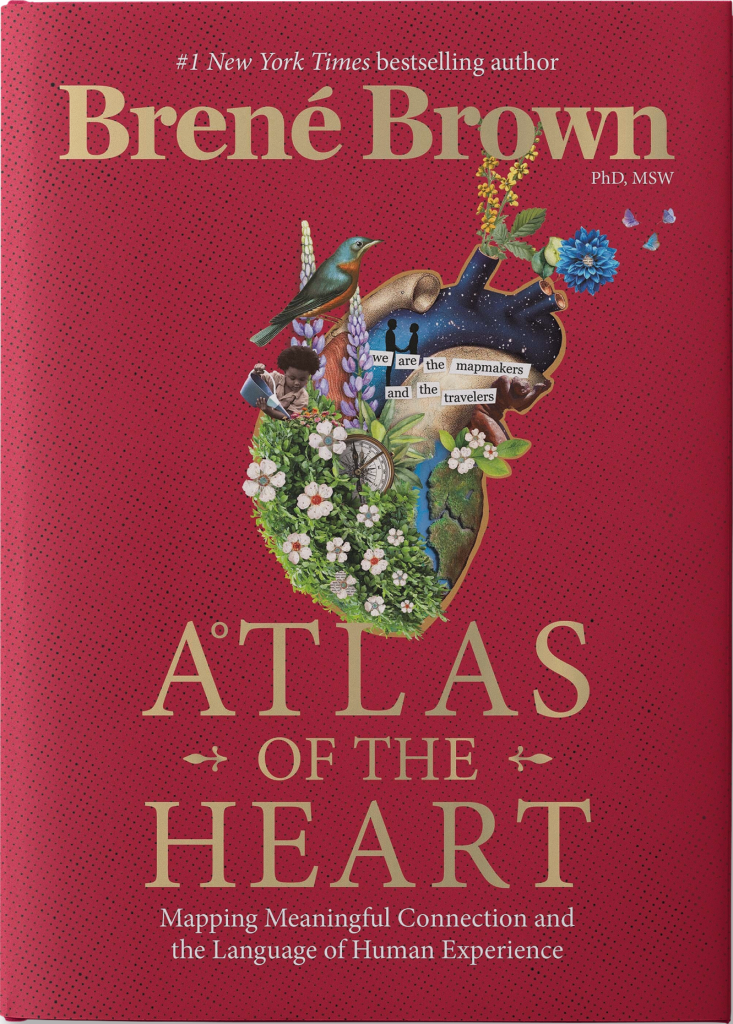What We're Reading Now
Naming Your Emotions Accurately is Step One
18 January 2022
Barbara read Brené Brown’s new book Atlas of the Heart and learned that accurately naming an emotion can help you deal with it.
Tags: barbara read, brene brown, covid-19, empathy
When I thought about emotions, I felt a little smug that I could cover them all with four labels—mad, sad, glad, and afraid. In reading about Brené Brown’s latest research, I had one more word than most but not nearly enough. She wrote, “Over the course of five years, we collected surveys from more than seven thousand people. The average number of emotions named across the surveys was three. The emotions were happy, sad, and angry.”
While admitting that no two researchers could agree on a definitive list of emotions, she and her team labeled 87 with a convincing description of each. She said until you can accurately name an emotion, you can’t do something about it—either let it go if it is negative or enjoy it without worrying about when it will end if it is positive. I am going to discuss one that she listed—loneliness.
As an introvert I didn’t think I could have too much alone time. COVID-19 taught me that wasn’t true. When I retired, I had worked to set up some structure that gave me enough contact with people. Before March 2020, I had two friends I would see once or twice a month at their house or mine and we’d spend at least two hours talking. That met my outside-the-family connection needs. I’ve continued with those two on the phone, and I was able to add a new person to the weekly talk schedule when I strengthened a friendship by suggesting that we do a book study together.
Our culture views loneliness as negative. I don’t like to admit when I am, but Brown quotes the researcher John Cacioppo who said, “Denying you feel lonely makes no more sense than denying you feel hungry.” Humans were made to connect with each other in order to survive. Just because we don’t have to group together to fight off animals or get food doesn’t mean the need for companionship has gone away. And then she adds alarming statistics by Holt-Lunstead, Smith and Layton: “Living with air pollution increases your odds of dying early by 5 percent. Living with obesity, 20 percent. Excessive drinking, 30 percent. And living with loneliness? It increases our odds of dying early by 45 percent.”

I had some health problems in 2021. Pain was all I thought about and talking about it didn’t help it. I continued to have phone conversations with my three friends, and they were wonderful about not bringing up my physical ailments unless I wanted to mention them. Thanks to a great doctor and some wonderful medicine, I’ve been better since October.
Brown says, “To combat loneliness, we must first learn how to identify it and to have the courage to see that experience as a warning sign. Our response to that warning sign should be to find connection. That doesn’t necessarily mean joining a bunch of groups or checking in with dozens of friends. Numerous studies confirm that it’s not the quantity of friends but the quality of a few relationships that actually matters.”
Once I felt stronger, I again figured out a structure that provides me with enough socialization. I talk on the phone with my therapist on Tuesdays, with one of my three close friends another day of the week though the scheduling with them is random because they have much busier lives than I have, with an occupational therapist who comes to our house twice a week to help with a variety of household chores, who sometimes gives me a massage and who is also a fabulous conversationalist. I’ve rejoined a Zoom meditation group that I dropped out of in April 2021 when I had surgery.
Every day I ask myself—do I need to talk to someone this afternoon? If the answer is yes, I try to think of people who might be feeling lonely like I am and call them. There are plenty of choices in my church community.
Until I read Brown’s book, I didn’t understand the importance of trying to alleviate loneliness. I also think her latest research will help me to be more empathetic when I’m helping others sort through how they’re feeling since it turns out that our range of emotions is more complicated than happy, sad, and angry.







Comments
Our Comment Policy:
Our blog posts are only half of the conversation. What our readers have to say is equally important to us, and we're grateful for all the comments that continue the dialog.
To ensure that the discussion here is as useful as possible to all of our readers, please be respectful of our contributors and refrain from harassing, threatening and/or vulgar language. We reserve the right to screen and remove any comments from the site. If you have a question about a comment or want to discuss our policy, please contact us. We'll talk it over.
There are no comments for this entry yet.